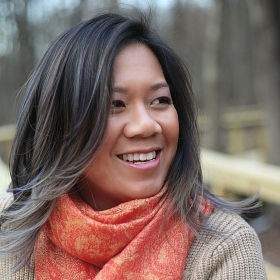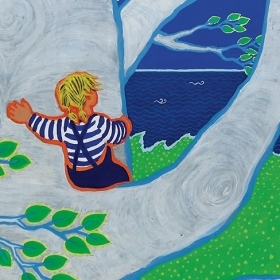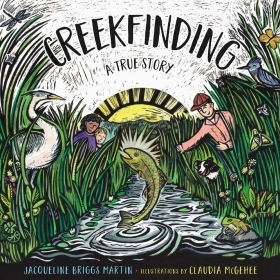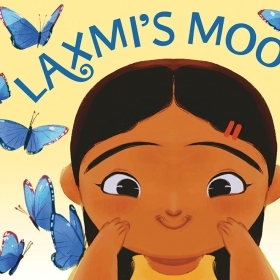Andrea Chan Wang ’92
When Andrea Chan Wang ’92 began writing the story that would become Watercress, her latest children’s picture book, she didn’t intend it to be a children’s book at all. “The truth is that I wrote it for myself,” says Andrea, from her home in Denver.

Elaine Freitas Photography
When Andrea Chan Wang ’92 began writing the story that would become Watercress, her latest children’s picture book, she didn’t intend it to be a children’s book at all. “The truth is that I wrote it for myself,” says Andrea, from her home in Denver. “It started out being a personal essay for adults because my mother had passed away, and I was trying to process my grief.”
The story centers on her childhood memory of feeling ashamed when her parents, Chinese immigrants, insisted she help pick watercress from a muddy ditch in their small Ohio town, and the resolution hinges on a previously unspoken family grief that made their foraging for sustenance so vital and poignant.
For eight years, the manuscript sat in a drawer. Then Andrea read A Different Pond, a children’s book by the Vietnamese-American poet Bao Phi, which also features an immigrant family foraging for food, and it allowed her to see her story in a new light. “I took it out and rewrote it from scratch—and cried the entire time,” she says.
So did Andrea’s agent when she read it. And even though the book’s heavy topics—shame, famine, the death of a child—might be a “hard sell” in the children’s picture book market, the manuscript quickly set off a bidding war. “It was great, but scary at the same time, because this was my heart,” she says.
Watercress was published by Neal Porter Books/Holiday House last spring to much acclaim and contains luminous watercolor illustrations inspired by traditional Chinese landscape painting by artist Jason Chin, a Caldecott honoree.
In writing Watercress, Andrea discovered a new compassion for her parents that she wishes she had found before they passed away. “My parents were very conservative Chinese parents,” she says. “They really wanted me to have a very practical career. For them, that meant law or science.” Although she had wanted to be a writer since she was a little girl, she instead became an environmental consultant, helping to clean up polluted sites across Massachusetts.
It was not until she had taken several years off from work to stay home with her two young sons that she began to imagine a different career path. While on vacation to visit family in Shanghai, she quickly ran out of English-language books to read to her children and began making up stories instead. When she returned to the Boston area, where she was living at the time, she began taking online classes, and in 2011, earned an M.F.A. in creative writing for young people from Lesley University in Cambridge, Mass.
After establishing herself as a writer of nonfiction books for the school and library market, Andrea has begun to find even greater success as a writer telling stories, like Watercress, that grapple with culture and identity. In August, she published her debut middle-grade novel, The Many Meanings of Meilan, about a young girl whose family has split up, forcing her to leave a tight-knit community in Boston’s Chinatown for a small Ohio town much like the one in Watercress. And in the next two years, Andrea is scheduled to publish two more books: a young adult novel set at a Chinese-American summer camp and a picture book, Luli and the Language of Tea, about the different words for “tea” from around the world and the universality of sharing a cup with friends.
“I just love telling stories, and I feel it is so important for Asian American kids to see themselves represented,” she says. “Wanting to put out stories that help kids through their struggles with their identity and figuring out who they are in the global community, that’s what keeps me showing up.”


